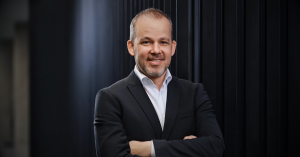How do you imagine your work week in the future? Maybe you will combine various different jobs, based on your various passions and strengths. You could dedicate mornings to an outdoors gig, while afternoons could see you build and monetize assets and virtual experiences in the metaverse. Evenings could be spent taking a course for which you’d receive a cryptocurrency reward to invest in NFTs or exchange for real money. Doesn’t it sound empowering?
As the future of work takes shape, market trends point to a shift of power toward the employee. Young generations were already exhibiting a preference for impact-driven careers when the pandemic created the perfect context for more professionals to reconsider their positioning in the job market and demand more from their employers.
Lack of qualified talent is a real issue for companies, also due to brain drain and the adoption of new technologies at a speed which surpasses that at which we can educate and train professionals to master them.
All this has ensured a strenuous effort from companies to attract, keep, and engage employees. Hybrid work and other flexibility options, as well as the prioritization of employee well-being as a key indicator of the company’s health are two clear examples in this sense.
And then there is Web 3.0, proposing a new internet economy in which all participants benefit from decentralization, transparency, and autonomy in the creation and use of digital products and services. One expectation is that the new economic incentives will give rise to new employment models, which will reward individual flexibility and creativity.
The Recursive reached out to Southeast European entrepreneurs to discuss ways in which employee power is shaping up in the workplace, and why this will make for better working environments.
#1 Working for a DAO… or several DAOs
Web 3.0 is opening new avenues for how we will organize our work in the future. The key technologies on which it is built, such as blockchain and AI, enable decentralization, autonomy, and transparency in the internet economy.
Traditional corporations where a handful of shareholders and managers control the entire business model are arguably not ideally suited to drive such an economy. Here is where DAOs step in, promising more shared ownership and a fair reward system.
So far, many DAOs have taken the form of decentralized finance (DeFi) products. Their nature makes them uniquely positioned to serve a key role in the decentralized world of crypto.
Yet other sectors of the economy are now waking up to the benefits that DAOs can bring. In Bulgaria, EnterDAO aims to develop various products within the metaverse landscape, starting with gaming products.
Elsewhere in Romania, Stakeborg offers an enterprise-level Proof-of-Stake infrastructure that aims to create a powerful bridge between investors and blockchain-based projects. Launched in 2020 by Romanian entrepreneur Vlad Mercori, Stakeborg’s first mission is to promote the use of blockchain by educating users around its applicability via different programs, including the Stakeborg Academy, and channels. In 2021, they launched the first DAO in Romania, a natural step for the company, as Vlad Mercori explains:
“Our community asked us to organize ourselves in a DAO. We are crypto educators at heart. We were creating educational content for quite some time and our YouTube and newsletter subscribers pushed us to the next level.”
There are several ways in which DAOs can lead to more employee power. First, DAOs are decentralized. They run on blockchain, control and decision-making are not within the hands of a single authority source; instead, token owners have voting rights (the equivalent of company shares), which can influence the decisions and direction of the organization.
In the context of the growing content creation economy, for instance, a decentralized system guarantees creators with more ownership over their work.
“The keywords here are democratization and ownership. All the content that we create on social platforms is not our content, it’s theirs. Because of that, Facebook for example, is the main entity that monetizes your work. Same goes for many brick and mortar companies. Just look at the huge bonuses C-level managers got during the last economic crisis. There was no alignment in incentives between those and the people who lost their jobs,” Vlad Mercori explains, adding:
“Web3 and DAOs will change that and will align the incentives between content creators, platforms and developers.”
DAOs are also autonomous. They are self-sufficient, run based on smart contracts and independent of human interventions, including the original creators. More automation arguably will allow professionals to spend more time on creative and fulfilling work.
Furthermore, while the traditional way to make money is “work-to-earn,” the future of income invites many more options to the table including play-to-earn, learn-to-earn, and create-to-earn. Expanding the pool of options in the digital space creates incentives for professionals to handle multiple jobs simultaneously.
“In the next five years, we will see more digital freelancers than ever before. Someone who is talented will work 1-2 hours a day for a company, 2-3 hours for another and take the Wednesday free because he likes working more on a Saturday. We will stop clocking hours, we will reward people on the progress they made within a specific task,” Vlad Mercori says.
To make that happen, compensation models will likely differ from traditional ones, and tokenization will be right at the core.
“By the end of the month you will have 7 different tokens. Some you will move to staking, some you will “hodl” while some will be exchanged for stables and spent on a nice coffee with your better half. A digital economy outside of the current falling and failing monetary system,” he adds.
#2 Prioritizing well-being
Employee power also resides in employers’ increased focus on well-being in the workplace. As our society and economy grow more complex, finding new ways to help employees manage stress levels and maintain productivity will be a critical component of maintaining healthy working environments. Well-being has long shifted from its traditional capitalistic definition of paying high salaries to a more social approach where companies provide a whole bunch of additional perks and benefits on top of the good remuneration, Christo Peev, CEO of remote recruitment platform Motion Software shares with The Recursive.
However, “these lists of benefits are not working the same way anymore, since they became the default setting within any modern company,” he says. What is the new differentiator, then?
“Creating interesting and memorable experiences for your employees is an approach emerging as a new powerful way to motivate and spoil your team and make a real difference among the other employers. In today’s world where people work often remotely even when they are physically together most of the communication happens virtually. Thus having real-life group experiences with your colleagues is a big necessity.”
As such, employees will likely benefit from more experiences aimed to attract and loyalize them, from co-working and co-living, to traveling, sports and entertainment.
“In an increasingly competitive war for innovation and top talent, well-being will be the key point of differentiation for both employees and employers,” Alex Harris, co-founder of Greek SaaS analytics platform Adadot tells us.
“Employers who realize they don’t just manage deliverables, but they manage people will rise to the top of the food chain. At the same time employees who prioritize their well-being will be able to succeed sustainably over a longer period of time,” she adds.
Admittedly, well-being in the workplace is not easy to measure. Signs such as burnout and work-life imbalance are not always easy to spot, especially in a remote-only working setting. Science-based solutions such as Adadot aim to help professionals reach higher levels of productivity and satisfaction at work, by helping employers analyze data from various tools used in the workplace.
“Data-driven approaches have been challenging in the past but the post-pandemic workplace offers a unique green field to finally leverage science to help everyone reach fulfillment at work,” Alex Harris says.
#3 Enabling flexibility in the workplace
Finally, discussions around flexibility in the workplace have reached a new peak during the pandemic period. As businesses shook out the numbness brought by the pandemic, they woke up to a new standard for flexible work arrangements they now have to adapt to.
“Nowadays, workplace flexibility is a top priority for employees as they seek a strong work-life balance. Remote working is becoming the norm, even if there are employers who still can’t break away from the traditional office model,” Sandu Babasan, co-founder of global network of proximity offices Nooka Space, tells The Recursive.
This transition has been facilitated by the emergence and adoption of new solutions that can support long distance communication and collaboration, such as digital platforms for virtual meetings. Solutions such as the proximity office network offered by Nooka Space further encourage the trend.
“Companies that embrace this trend can enjoy long-term benefits, including cost optimization, access to global workforce, employee retention and satisfaction. On the other hand, businesses that employ a hybrid work model can overcome hiring and retention challenges, providing better work environments,” Sandu Babasan adds.
Even so, to be effective, a hybrid working approach needs to be reflected in the organization culture. One issue that arises is to maintain the balance between in-person and remote work depending on the nature of the task. Creative processes, like social events, brainstorming, and feedback, will likely require an in-person approach.
“It’s challenging to create alignment at scale and remote, as well as a sense of connection between employees. People have to find new ways to meet others and they have forgotten how to do that. We have to embrace it, not ignore it,” shares Greek serial entrepreneur and angel investor Stefi Vasilopoulou.
. . .
Overall, the transition to new ways of working requires a more collaborative and flexible approach from employers. This favors employee power, by creating opportunities to engage in more meaningful and fulfilling work.
“Now, you can live wherever you have the best life and you can work wherever you have your best job. These don’t need to be connected if you work for the right company or you create it. The future of work is collaborative. It must be equitable for all, more diverse, and inclusive,” Stefi Vasilopoulou adds.








